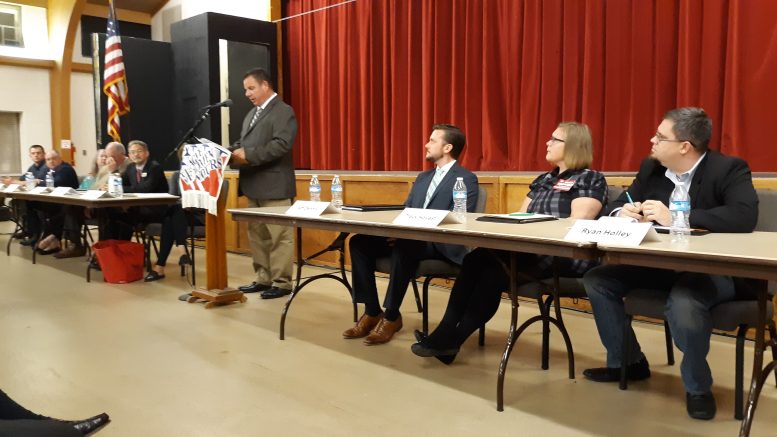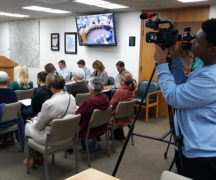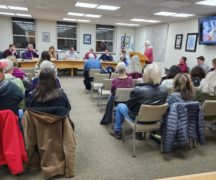By JAN LARSON McLAUGHLIN
BG Independent News
The four people competing for two seats on Bowling Green City Council had a chance to woo voters Sunday evening during the candidates night organized by the Bowling Green League of Women Voters.
The third and fourth ward council seats are the only positions being contested in the November election. The positions of mayor, first ward, second ward and at-large council seats each have just one candidate on the ballot.
Running for the third ward seat are Ryan Holley and Rachel Phipps.
Holley, a Republican, is a small business owner, a business instructor at Bowling Green State University, and has experience serving with the city’s planning commission, economic development office, and chamber of commerce.
Phipps, a Democrat, is an attorney, freelance writer, worked as assistant dean for communications at the UT College of Law, and was an environmental attorney for the Ohio Attorney General’s Office. She recently served on the city’s charter review commission.
Running for the fourth ward seat are Jeff Dennis and Bill Herald.
Dennis, a Democrat, studies law at the University of Toledo, and formerly worked as an election administrator at the Wood County Board of Elections.
Herald, a Republican and incumbent on city council, is a data scientist at First Solar, and has served more than nine years on council.
Following are the questions posed to the candidates.
Sixty-three percent of housing in Bowling Green is owned by landlords and used as rentals. How can the city create more housing, specifically for the 82 percent of BGSU employees who don’t live in Bowling Green?
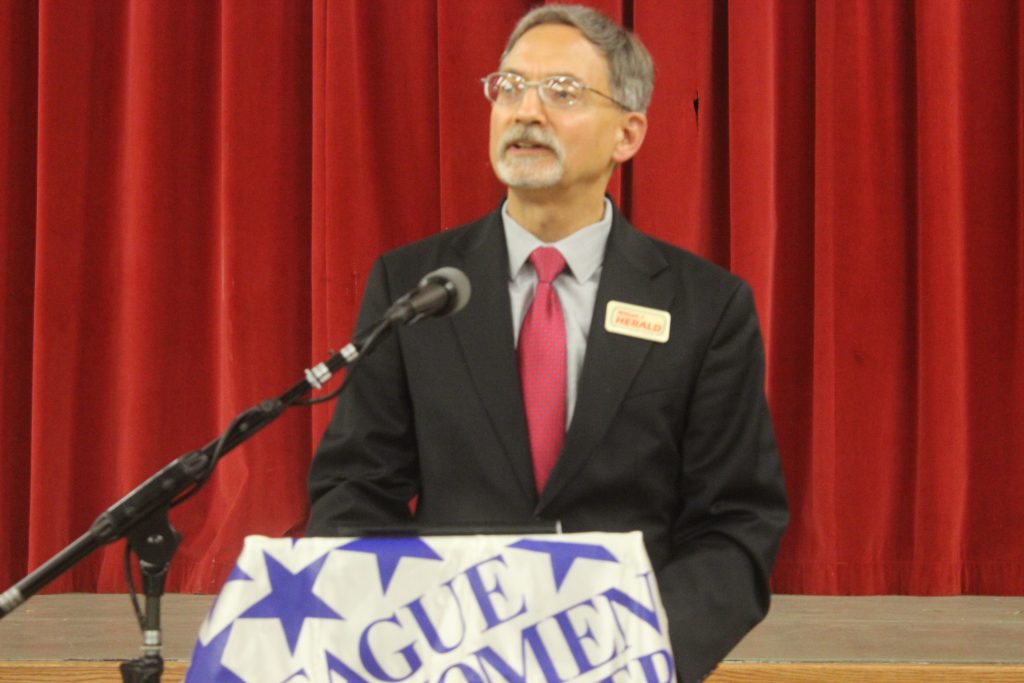
Herald said the city is working on partnerships with other entities on this issue.
“Housing is not in and of itself under the purview of the city,” he said.
But the city can adjust its zoning regulations and improve infrastructure that can help with the housing issue, he said.
Herald also pointed out the master plan completed by the city, and the current efforts underway to change the zoning code with the help of a consultant.
Dennis suggested public-private partnerships which will not only attract new residents, but also new businesses to the community.
He said he supports high density housing in the downtown area.
Dennis cautioned that the city not “sell to the highest bidder,” but maintain control so the city can shape the characteristics of development.
Phipps said the city needs to consider all options of apartments, condominiums and townhouses. She referred to the plans formed by consultants, adding “now is the time to act.”
“We all want neighborhoods we can be proud of,” she said.
Phipps recommended working on zoning codes and focusing on neighborhood revitalization.
“I’m very excited to work on this challenge,” she said.
Holley noted that rental housing is not just for the transient college population, but is a lifestyle choice for many. While managing Stadium View apartments, he saw many residents who rented there for decades.
Holley talks about the city’s master plan. “I love the idea of mixed use development,” he said.
An example of that is the Market Square development, at the northeast corner of East Wooster and North Prospect, which was approved by the city planning commission when Holley was a member.
Holley suggested loosening zoning rules, working with the economic development office, the chamber and studying grant options. He also praised the Welcome BG effort, which is intended to attract people to fill jobs in the city.
“We are hemorrhaging people to Perrysburg and Findlay,” he said.
The next question asked about the city’s role in environmental and energy sustainability.
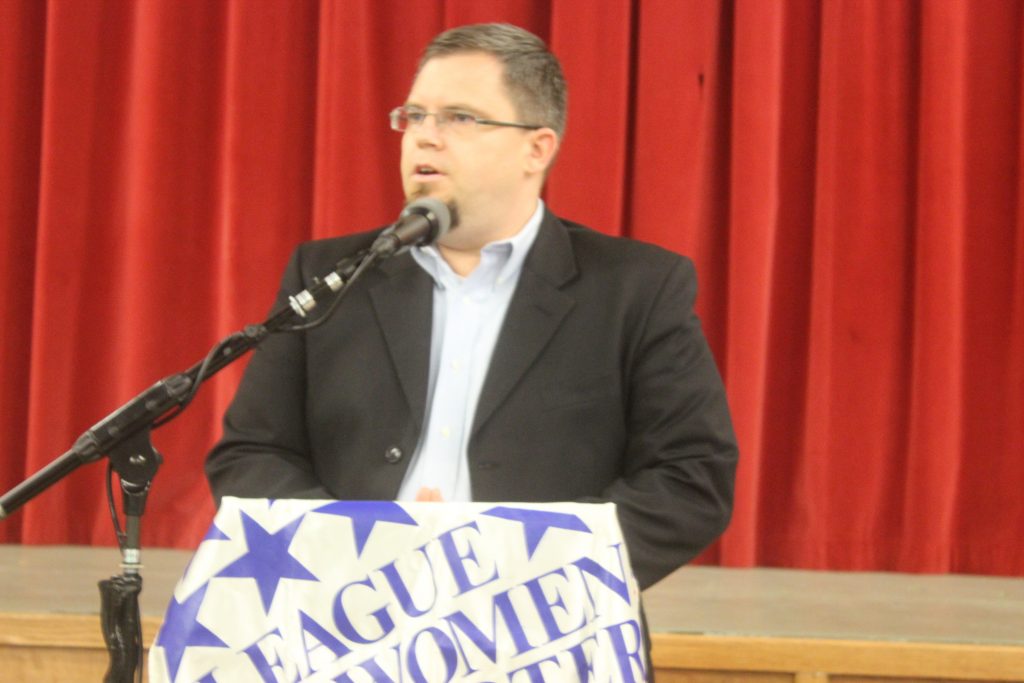
Holley said the city should follow the master plan, and support the efforts of the new sustainability director.
Phipps said environmental and energy sustainability not only promote public health, but will also save the city money.
She noted that younger generations “overwhelmingly care about this.”
Bowling Green currently gets 40 percent of its energy from green sources, she said. And now is the time to follow through on creating a sustainability board and to start projects like curbside composting.
“We should be thinking long-term about sustainability,” Phipps said.
Herald, as a data scientist for First Solar, said he supports the city’s renewable energy efforts.
“We as a community can be very proud,” he said.
The city needs to continue its efforts to increase green energy, plus continue to look at the creation of a sustainability board and plastic bag ban.
“We must continue our recycling,” Herald said, noting he was on council when curbside recycling began in the city.
Dennis said that waste costs the city money – with the city spending $250,000 burying trash in the landfill last year.
Over the next decade, Dennis said he would like to see the city reduce waste, start community-wide composting, and offer yard waste pickup more frequently. He was also critical of the time spent by council on the possible plastic bag ban.
“Spending nine months debating whether or not to ban plastic bags is not going to get us there,” he said.
Dennis noted the city’s latest efforts to create a community solar field, and suggested that geothermal efforts be next.
Candidates were asked about the number of empty storefronts in the downtown, and how the city might stimulate development there.
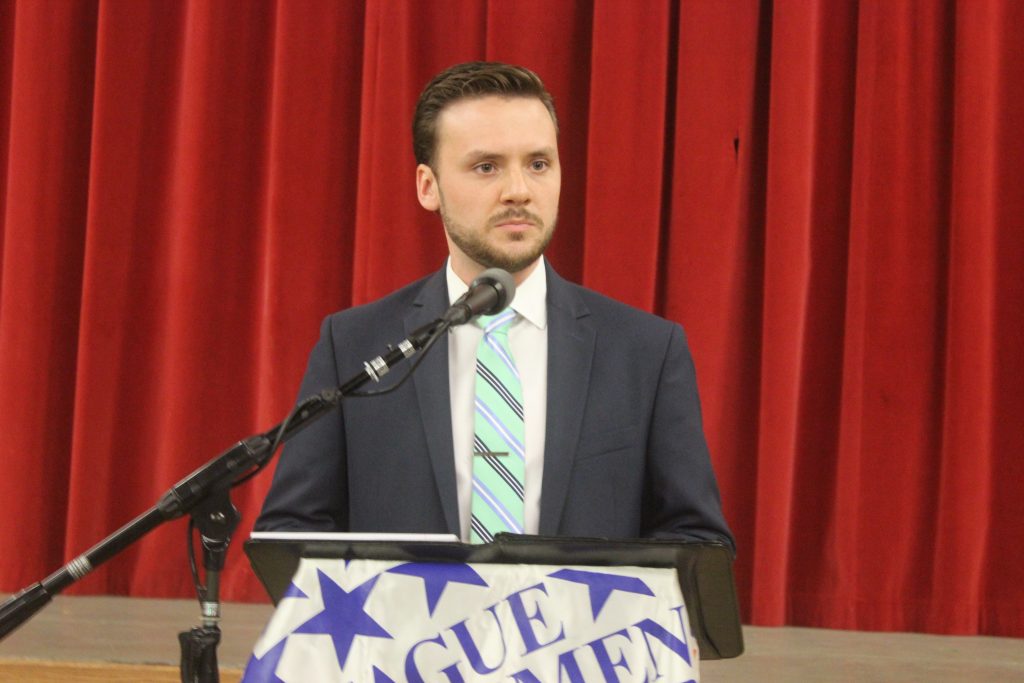
Dennis said the city must focus on attracting more residents – which will then attract businesses. He said Perrysburg’s population is growing at 10 times the rate of Bowling Green, and Findlay is growing three times as fast.
He suggested the city promote public art in the downtown.
“We have a lot of influence over the look and feel of our downtown,” he said.
Dennis also promoted bike lanes in the downtown. “We’ve got the plan to do it,” he said.
Herald spoke of the number of studies showing that the downtown is an important component to the community. The city has started to implement those plans, “so we become a more attractive town,” he said.
He praised the business organizations promoting the downtown.
Holley said the master plan has set up “terrific groundwork” for the city. He mentioned the possibility of two breweries and a winery coming to the downtown soon.
He talked about the value of cleaning up the area and providing more public art.
“I believe once we get this construction done, we’ll see more people downtown,” he said.
Holley also praised the efforts of downtown event organizers of Firefly Nights, the Black Swamp Arts Festival, and Wooster Green.
Phipps suggested the city work with restaurants on possible sidewalk dining. She talked about the possibility of rerouting truck traffic around the downtown, and providing art-inspired work in alleys and on bike racks.
Phipps also said she supports higher density housing in the downtown.
Council candidates were then asked about the future of Simpson Garden Park, and whether or not the annual $200,000 budget for the park is sustainable.
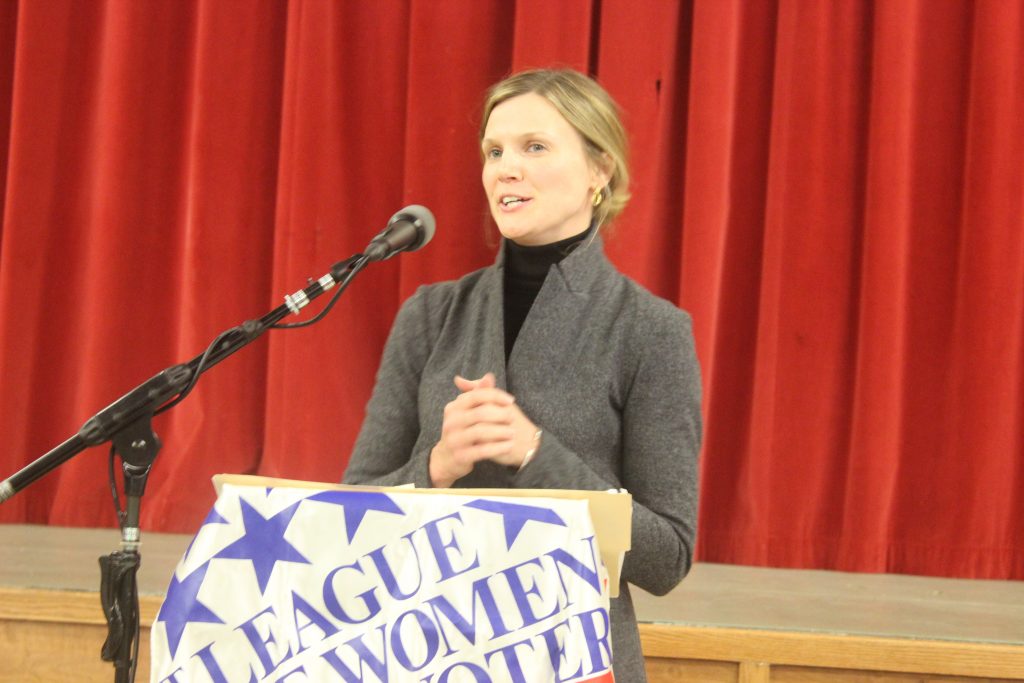
Phipps said she was not familiar with all the issues facing the park.
“To be honest, I have a lot to learn here,” she said, adding that she will work hard and do the research necessary.
“I am hopeful there will be a way the footprint can exist as it currently does,” she said of the garden park.
Holley noted that the master plan for the city parks is being updated, and will look at options for the park.
One solution, he said, may be turning to the public for their help. The community has many residents who are looking for ways to give back, and the university has many students looking for ways to perform community service.
Herald said the city’s park and recreation department is currently working on a strategic plan update, and is listening to concerns raised by neighbors.
“I don’t accept that there will be a smaller budget” in the future for the park, he said, noting that the garden park attracts people to the city.
Dennis acknowledged that some neighbors of Simpson Garden Park are not happy with the current direction of the park.
“I think we need to take that into consideration,” he said.
Dennis said he believes the park should steer back toward being a garden park. He also suggested that the city needs to factor in the costs of maintenance when starting park projects.
He also said the city should consider establishing a dog park.
All the candidates were then allowed to offer closing statements.
Herald said he has been committed to assisting and representing citizens interacting with city government. He voiced his support for respectful dialogue, and said he offers a calm, level-headed voice of reason on council.
Herald also asked the audience to be aware of a “distortion of facts” appearing on social media. He said such campaign tactics are common at national levels, “but until now council races have been civil. I humbly ask that we reject this cancer” which may discourage people from running for city council in the future, he said.
Dennis said that people with questions should consult the transcripts from public meetings.
“I want to bring a fresh approach to city government,” he said. And that approach means more doing and less studying.
“Studies and consultants cost money,” Dennis said. “Studying is great to a point. We need to stop studying and over-analyzing.”
Dennis said he supports neighborhood revitalization, sustainability, and updates to the zoning code that help businesses locate in the city or expand here.
Phipps said Bowling Green has a great story to tell – with its university, parks, hospital and county seat.
“We need to tell our story clearly and often,” she said. “There’s much we can do to create an even better Bowling Green.”
Holley noted his experience in business and on the city planning commission. He said the studies have been done, and now the city needs to proceed on implementing those plans.
“We are ready to launch, and I’m ready to be part of that,” he said.

